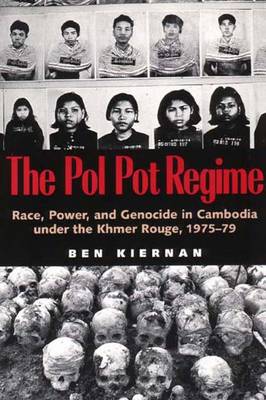Yale Nota Bene
1 total work
The Khmer Rouge revolution turned Cambodia into killing fields, as the Pol Pot regime murdered or starved to death a million and a half of Cambodia's eight million inhabitants. This book - a comprehensive study of the Pol Pot regime - describes the violent origins, social context and course of the revolution, providing an answer to the question of why a group of Cambodian intellectuals imposed genocide on their own country. Ben Kiernan draws on more than 500 interviews with Cambodian refugees, survivors and defectors, as well as on a collection of previously unexplored archival material from the Pol Pot regime (including Pol Pot's secret speeches). He recounts how in the first few days after Cambodia became Democratic Kampuchea in 1975, authorities evacuated all cities, closed hospitals, schools, monasteries, and factories, and abolished the use of money. For nearly four years, the country was a prison-camp state, the countryside was "cleansed" of minorities and a war was fought against Vietnam.
Exploring the nature of the regime that enforced such a revolution, Kiernan shows that its atrocities - the widespread massacres, forced assimilation of minorities, and foreign alliances and wars - can be explained by its ideological preoccupation with racist and totalitarian policies. Kiernan concludes with a description of the resistance movements that sprang up and the destruction of the regime by Vietnamese forces in 1979.
Exploring the nature of the regime that enforced such a revolution, Kiernan shows that its atrocities - the widespread massacres, forced assimilation of minorities, and foreign alliances and wars - can be explained by its ideological preoccupation with racist and totalitarian policies. Kiernan concludes with a description of the resistance movements that sprang up and the destruction of the regime by Vietnamese forces in 1979.
